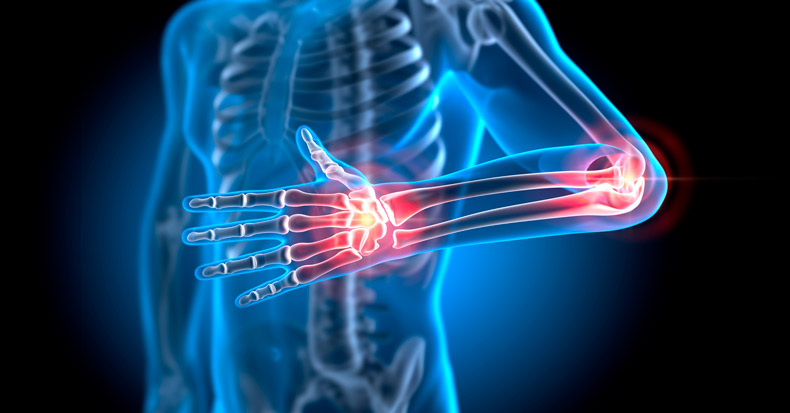Newest Articles
Vitamin D is an essential nutrient associated with numerous bodily functions, but perhaps vitamin D’s most widely known benefits are those it provides to the musculoskeletal system, namely its roles in bone mineralization and muscle function, both of which are important for reducing the risk for serious fall-related fractures in the elderly. However, there’s another [..]
Migraine headaches are classified as a primary headache disorder. Migraines are three times more common among women, especially in their premenopausal years. While migraines are still not fully understood (meaning they are likely underdiagnosed and undertreated), the available data show they are the most debilitating type of headache and rank seventh among health conditions with [..]
People become healthcare providers because they are interested, often passionately, about helping others with their health. Most healthcare providers are horrified at the thought that anything they did or failed to do could end up harming a patient. Yet, every type of health care is associated with some risks of potential problems. These problems can [..]
Because of the close anatomical relationship between the wrist and elbow, it’s not uncommon for patients to present for care with symptoms that affect both regions. In some cases, they may have two distinct musculoskeletal conditions that need simultaneous treatment. But in other cases, the pain in one area may be referred by a musculoskeletal [..]
The rapid flexion/extension, compression, and rotation of the cervical spine that commonly occurs in motor vehicle collisions can result in trauma that includes facet derangement, disk injury, and ligament sprain or rupture, frequently occurring in the upper cervical region. When the upper cervical spine exhibits excessive motion in combination with pain and other neurological symptoms, [..]
It’s common for the knee joint to be very noisy, especially when performing activities such as squatting, climbing steps, or repetitive knee extensions. Patients frequently present to their chiropractor and ask, “Is that noise normal and should I be concerned?”
In most cases, crepitus (noise) emitted from the knee—which can include clicking, cracking, catching, snapping, [..]
Type 2 diabetes is a gradual, progressive chronic disease that is recognized as being one of the most common metabolic disorders as it currently affects 537 million adults worldwide and is predicted to rise to 783 million by 2045. Because increased blood sugar thickens the circulating blood, people with type 2 diabetes are at greater [..]
If you consider a vertebral segment as consisting of three legs like a tripod, the front of the vertebrae is the large vertebral body and the two legs in the back are the articular facets. The spinal cord passes between these three legs as it travels its course from the brainstem down to the tail [..]
Migraine is a neurovascular brain disorder that affects about 15% of the population and is the number one cause of disability in adults under the age of 50. Neck pain has been estimated to be twelve times more likely to occur in migraine patients than in healthy subjects. Similarly, migraineurs with neck pain report more [..]
Considerations for Costs, Outcomes, Surgery, Injections, and Imaging
Introduction
Healthcare providers of various disciplines tend to believe in and offer patients the intervention of their specialty:
Medical doctors tend to prescribe medicines.
Surgeons tend to offer surgery.
Acupuncturists tend to offer needles.
Massage therapists tend to offer massage.
Physical therapists tend to offer physical therapy. [..]
Though whiplash associated disorders (WAD) is a term used to encompass the myriad of symptoms associated with whiplash injury, research has largely focused on the neck, and more recently, brain. However, there is another area of the body that often experiences injury during trauma involving the sudden back and forth movement of the head and [..]
Sleep is a basic and essential need that allows the body to rejuvenate, which provides both physical and mental health benefits. Lack of quality sleep can increase the risk for chronic health conditions and significantly reduce an individual’s quality of life. Sleep troubles tend to become more common with age, which can worsen existing health [..]














